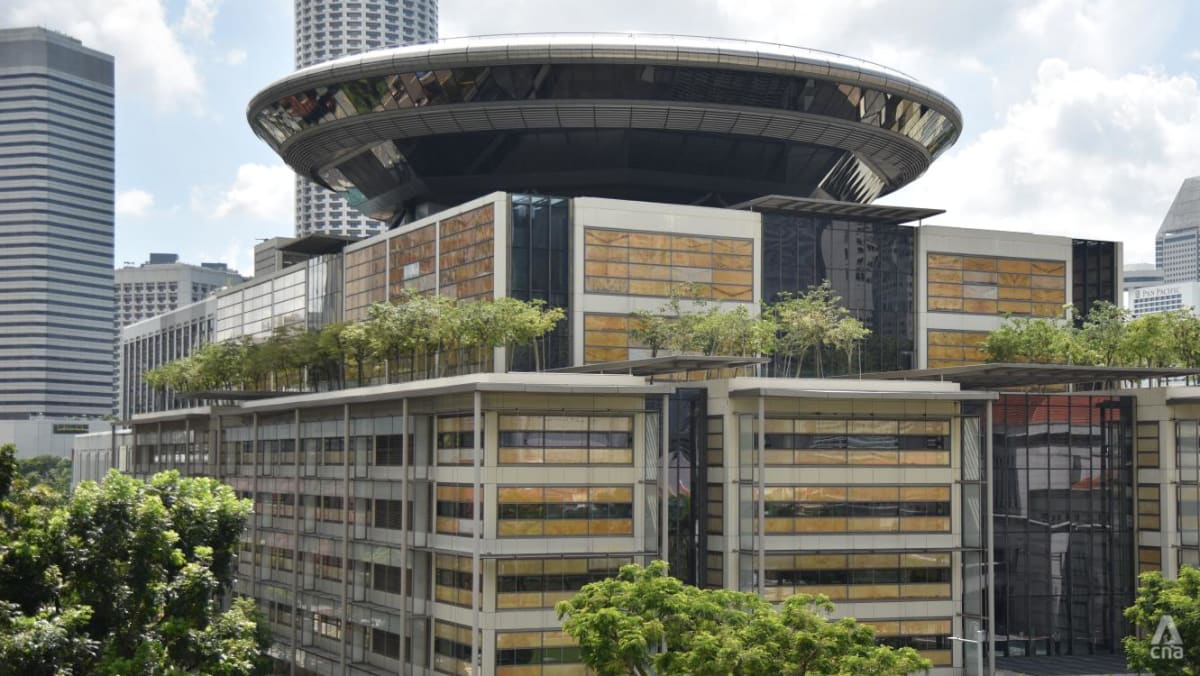SOME DISCLOSURES NOT IN LINE WITH USUAL PRACTICE
The court was told that the Ministry of Home Affairs (MHA) and SPS typically scheduled executions of prisoners when no relevant proceedings were pending that would require postponement.
As part of this process, they regularly shared documents with the AGC, seeking advice on any legal matters that might affect the execution timeline.
As SPS and MHA officers handling such matters are not legally trained, if they came across any document that appeared to be legal in nature, they would send it to AGC for advice.
“This approach was adopted out of an abundance of caution,” said Deputy Attorney-General Tai Wei Shyong in an affidavit.
The court noted that almost all disclosures were explainable by this practice, as the documents concerned proceedings arising from the prisoners’ convictions and sentences, or the dismissal of appeals.
These included complaints against lawyers, requests for legal assistance or clemency applications to the president.
But there were some instances of disclosure that were not in line with this practice. They included a letter from Roslan to the state courts, a letter from Gobi and Datchinamurthy to the police, two letters from the police to Datchinamurthy and a letter from Saminathan to the police.
There were also three letters from Datchinamurthy to his former lawyer.
The disclosure of this correspondence arose from MHA or SPS wanting to obtain AGC’s advice on how to respond to the requests made by the prisoners, the court heard.
But “one more significant disclosure” fell outside this practice – Suhail’s letters to his uncle in March and May 2017.
In an earlier case against Suhail, AGC told the court that it had Suhail’s letters. It said then that it did not use this correspondence or gain any advantage in legal proceedings against Suhail.
AGC had asked for and received Suhail’s letters to his uncle.
“It became clear to us that Suhail’s correspondence had not only been requested by the AGC, but also used by the prosecution in (his criminal review) in so far as, in its submissions, it had noted the fact that Suhail had sent letters to his uncle,” said Justice Prakash.
“This seemed at odds with the (AG’s) previous representation … that Suhail’s correspondence had not been used in any legal proceedings.”
The Appeals Court said the handling of Suhail’s correspondence “does give rise to some concern”.
However, it highlighted that the effect that the disclosure had on Suhail’s criminal review and other cases were not concerns arising directly in this appeal. It was instead focused on the private law remedies for the appellants.
COURT’S FINDINGS
The court – which includes Chief Justice Sundaresh Menon and Justice Steven Chong – ruled it was unlawful for SPS to have passed copies of the prisoners’ correspondence to the AGC, and also unlawful for AGC to receive or ask for the same.
There was no legal basis for SPS to disclose the personal correspondence of prisoners.
While there is a regulation that permits prison officers to read and copy correspondence from and to prisoners, this is limited and does not allow SPS to copy letters between lawyers and their clients.
The prison service is also not allowed to share such correspondence with anyone, including the AGC.
However, the court recognised that in some instances, the prison service might need to disclose the contents of prisoners’ letters to relevant authorities. This is so as to obtain legal or other advice.
In such cases, SPS would “at least” have to make it clear to the AGC that the disclosure was only for the purpose of obtaining “some particular and urgent advice and identify the issue requiring advice”, said Justice Prakash.
The AGC must have systems in place to maintain the confidentiality of any documents received for such purpose, and they should only be disclosed to officers tasked with providing the necessary advice to the SPS.
This “limited exemption” would not permit AGC to ask for prisoners’ correspondence to be disclosed.
The court noted that there were no processes adopted by AGC to maintain the confidentiality of the documents that were disclosed by SPS or to ensure they were not seen by the officers who dealt with the prisoners’ prosecution.
The court said that despite steps taken by AGC and SPS to remedy the situation, a “declaration of unlawfulness … would be valuable to prisoners and the public”.
Regarding the breach of confidence, some letters written to judges and the police had no expectation of confidentiality, the court ruled. These included four clemency petitions to the court and one more such petition to the president.
The prisoners who wrote the letters could not have expected these letters to be kept away from the prosecution, the court said.
But some other letters – including those to their lawyers, the Law Society about complaints against lawyers and requests for help, as well as to family – had an “expectation of confidentiality”.
The court ruled the AG had breached 11 prisoners’ confidentiality.
On whether the prisoners’ convictions or sentences were affected by the disclosure of their letters, these were matters for criminal review proceedings, rather than a civil appeal, said the court.
It rejected the prisoners’ claim for damages, adding that there were no local decisions awarding punitive damages for a breach of confidence. The prisoners also did not provide any legal basis for such a claim.
The apex court also ruled that the lower court “did not err” in ordering the S$10 nominal damages for three prisoners and that no declaration of infringement of copyright needed to be granted.
“It would be obvious from the award of nominal damages itself that there had been a technical infringement of copyright, making any declaration superfluous,” said Justice Prakash.

